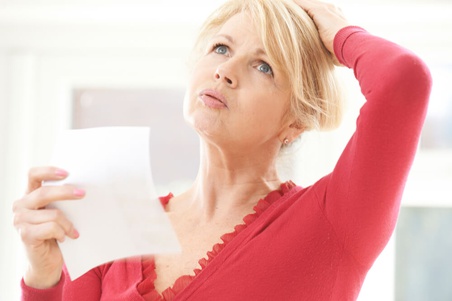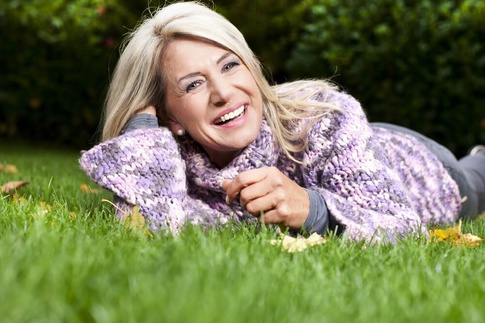Nous vous présentons un nouvel article invité qui a été rédigé par l’équipe de Fifty & Me Magazine. Ils nous parlent aujourd’hui des traitements hormonaux que les femmes peuvent prendre lors de la ménopause.
Bien qu’il s’agisse d’un phénomène normal qui fera – tôt ou tard – partie de la vie de toutes les femmes, la ménopause pose de nombreux questionnements. En effet, cette période signe un changement, plus ou moins brutal, tant sur le plan physiologique (avec des manifestations souvent pénibles telles que des troubles du sommeil, les fameuses « vapeurs », des sauts d’humeur, une baisse de libido, etc) que sur le plan émotionnel. Le traitement hormonal substitutif est-il une solution qui nous convient à toutes ? Quels sont ses bénéfices mais aussi ses risques ? Faut il le commencer dés les premiers signes de la periménopause ? Quelles sont les alternatives ? Le Docteur Aghayan, gynécologue à la Bruxelles Ménopause Clinique, nous apporte des réponses…
Article invité rédigé par Fifty & Me Magazine
Comment le THS contribue-t-il à mieux vivre cette période souvent difficile de la vie d’une femme ?
La ménopause est vécue de façon harmonieuse par certaines femmes, par contre pour d’autres, il s’agit d’une étape vraiment pénible. Le THS contribue au bien-être de ces femmes en les soulageant de leurs plaintes.
La décision de commencer un traitement hormonal substitutif s’applique-t-elle à toutes les femmes ?
A une grande majorité, mais la décision doit être prise après discussion entre la patiente et son médecin en tenant compte de ses antécédents médicaux personnels et familiaux. D’autre part, il faut toujours tenir compte du souhait de la patiente : certaines préfèrent se tourner vers les méthodes dites naturelles, dans un premier temps en tout cas.
Doit-on commencer dès les premiers signes ou plus tard ?
Le traitement doit être instaurer dans les premières années de l’installation de la ménopause. La définition de la ménopause est l’arrêt des règles, on parle donc de ménopause après un an d’aménorrhée ( absence de règles). Il faut savoir que le THS permet la prévention cardiovasculaire ainsi que celle de certaines formes de démences séniles uniquement s’il est instauré durant les premières années de la ménopause, c’est-à-dire celles consécutives à l’année d’aménorrhée.Si commencé trop tardivement, non seulement le THS n’a plus ces effets bénéfiques cardiovasculaires et neurologiques mais à l’inverse il peut avoir des effets délétères !
Quelles sont les contre-indications ?
Il est évidemment difficile de citer une liste complète mais les principales sont les antécédents personnels de cancer du sein évidemment et certains autres cancers gynécologiques ( pas tous), d’un syndrome métabolique mal équilibré, de thromboses, les patientes à risque de thrombophlébites … L’évaluation des contre-indications doit être faite par le médecin après une anamnèse complète. Les traitements sont très personnalisés et réévalués annuellement.
Quels sont les bénéfices du THS ?
Soulager des plaintes liées à la ménopause telles que les bouffées de chaleur, insomnies, troubles de l’humeur, sécheresse vaginale et cutanée, baisse de libido, arthralgies, troubles de la mémoire et de la concentration … mais il y a aussi d’autres effets bénéfiques sur le plan cardiovasculaire, neurologique et contre l’ostéoporose.

Et ses risques ?
Si la patiente est bien ciblée après l’anamnèse, il n’y a pas de risques. Sinon elle encoure surtout des risques thrombo-emboliques.
Comment le THS a-t-il évoluer ces dernières années ?
Vers le plus faible dosage efficace…
En tant que femme, comme en tant que médecin, êtes-vous pour le traitement hormonal substitutif ?
Bien prescrit, il ne peut qu’apporter que du bien-être à la femme qui reste très active de nos jours durant les 30 années qu’elle va passer en moyenne en ménopause !
Quelles sont les alternatives au THS ?
Les compléments alimentaires sont des alternatives valables mais aucun n’offre tous les avantages du THS…
Bien vivre sa ménopause
« La ménopause concerne 2.250.000 femmes en Belgique. La thérapie hormonale de substitution a été un grand bond dans la prise en charge médicale des femmes et le signe d’un changement de mentalité. Enfin, la médecine ne considérait plus comme allant de soi les troubles dont se plaignaient les femmes : il ne s’agissait plus d’une simple question de confort. Aujourd’hui, 25% à 30% des femmes ménopausées ont recours à une thérapie hormonale de substitution », souligne le Dr Crabbé, président fondateur de l’Association européenne de gynécologie holistique. A l’heure actuelle, on ne peut que confirmer – études récentes à l’appui – que l’association d’œstrogènes et de progestérone qui constitue la thérapie classique est « safe » dans le sens que ces hormones ne sont pas considérées comme perturbatrices sur le long terme. L’EMAS, The European Menopause and Andropause Society, préconise également une évaluation annuelle et une réduction de la posologie par tranche d’âge car les besoins en hormones diminuent avec l’âge.
Par contre, et pour augmenter le confort général et quotidien, les médecines dites douces ou holistiques apportent également de très bons résultats en traitement d’appoint.Pour répondre à nos tracas du quotidien « je transpire, je me sens mal, je manque d’énergie, je suis moins patiente, etcetera », on a deux options : se diriger vers des compléments qui sont des précurseurs hormonaux et qui aident à réguler les symptômes; ou s’orienter vers des plantes qui vont taire les symptômes. Les grands classiques sont le yam ou encore le soja. On parle ici de phytohormones dont l’activité oestrogénique ou progestative est semblable à celle des oestrogènes et de la progestérone: ces plantes miment l’action des hormones sexuelles humaines. Les isoflavones du soja sont une alternative intéressante quand la THS est indésirable. D’un autre côté, les extraits de Yam imitent les effets de la DHEA.

Pour réduire la plus grande majorité des symptômes, les laboratoires associent ces différentes plantes dans des compléments alimentaires. Monsieur Rousseau, naturopathe averti, nous éclaire
« On retrouve presque toujours les mêmes plantes , c’est du Gattilier, de l’Actée à grappe noire et du Yam. Parfois un peu de passiflore et de mélisse pour avoir un effet calmant qui permettra de mieux dormir. Ces plantes sont actives sur les symptômes et agissent comme des régulateurs du système nerveux. En dehors de ça, il y a un produit qui donne de très bons résultats qui est la Maca, considéré comme le Ginseng péruvien. On dit que c’est un adaptogène qui va permettre aux glandes surrénales de s’adapter au stress. L’intérêt de la Maca c’est qu’on a en même temps une régulation hormonale pour les personnes qui ont les 1ers symptômes de la ménopause. En donnant de la Maca, on va améliorer le confort et l’état général. Très souvent, la personne va se sentir plus en forme. »
Finalement chaque laboratoire essaye d’être créatif pour proposer de solutions en s’intéressant de plus près aux différentes phases de la ménopause avec des solutions plus ciblée pour la préménopause ou la Postménopause. On trouve de plus en plus de formules à large spectre à base de plantes contre les troubles de la ménopause et les facteurs de risques apparentés. On peut les utiliser comme soutien en cas de symptômes ménopausiques, de troubles de l’humeur, de bouffées de chaleur, d’irascibilité pendant la ménopause, ou encore de sécheresse vaginale. Bon à savoir : Attention, les précurseurs hormonaux peuvent entrer en compétition avec les THS. Enfin, on peut aussi se tourner vers la gemmothérapie en privilégiant des extraits de bourgeons de pommier, l’aubépine, la sauge et surtout l’airelle. L’airelle est reconnue comme un concentré intéressant pour tous les problèmes liés à la ménopause. Quelques gouttes seulement sont capables de neutraliser tous les symptômes tels que bouffées de chaleurs, problèmes urinaires, etc.
La ménopause n’est pas une maladie
Finalement, à chaque profil sa formule pour trouver l’équilibre. Tant hormonal que psychologique ! Parfois négligé, cet aspect est indispensable pour bien vivre sa ménopause. N’oublions pas que le corps et l’esprit sont indissociables. Alors que la thérapie agit uniquement sur le métabolisme, il est essentiel de « soigner » son mental pour accueillir ce passage sereinement. Parce qu’à 50 ans, la vie familiale change, les enfants quittent le nid, on a parfois la sensation qu’il est trop tard pour commencer quelque chose ou trop tôt pour arrêter. Il est important de se donner du temps pour trouver un nouveau bien-être, que ce soit à travers des exercices physiques ou des loisirs culturels.
Et pourquoi pas envisager d’intégrer un groupe de yoga ? De suivre des ateliers sur l’aromathérapie ? De se mettre à la marche nordique? Les possibilités ne manquent pas pour se faire du bien et créer un nouveau tissu social autour de soi. La ménopause doit aussi servir à ça… c’est en quelque sorte une quête pour donner un sens à sa vie.

« Souvent, à cette période, les femmes se vivent beaucoup moins en forme que les hommes du même âge. » indique Monsieur Rousseau, » Parce qu’elles vivent cette période comme une rupture ». A cela s’ajoute parfois un mal fou à accepter le regard de la société sur le physique vieillissant. Les cheveux qui grisonnent, les rides qui se marquent, le corps qui se transforme,… l’aspect extérieur les minent.
« Pourtant à chaque âge ses caractéristiques (et ses joies!), il ne tient qu’à nous de les vivre positivement ou négativement, » Fabienne, 54 ans.
Même les mannequins d’aujourd’hui assument les cheveux blancs. Et si on cherchait moins à rajeunir qu’à être bien dans notre âge et dans notre peau… Des solutions existent. La preuve.



